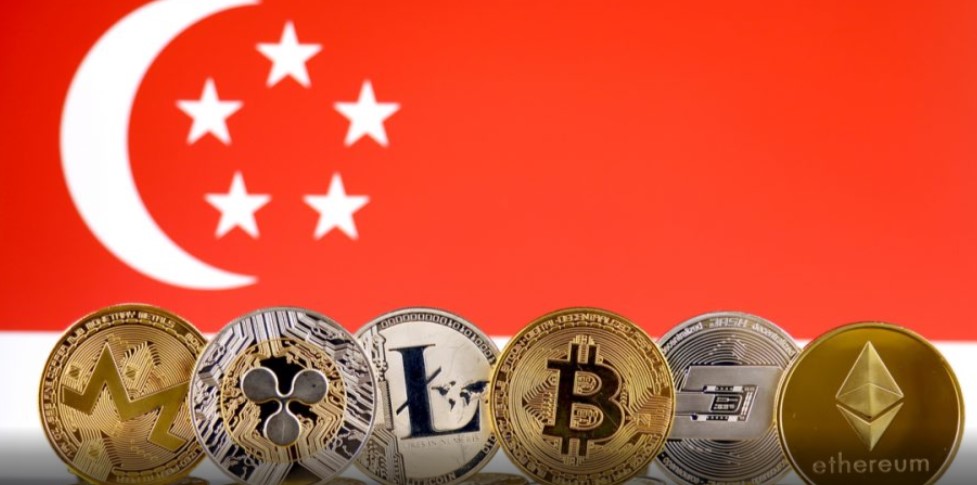
Crypto license obtainment in Singapore
Cryptocurrencies are legal in Singapore, but a license to work with cryptocurrencies is required for ICOs and crypto exchanges. Traders are also required to obtain a crypto license to maintain professional activity. Apart from securities-related licenses, there is a financial adviser’s license which should be obtained by companies that provide advice on financial operations with tokens. In some cases, such companies must comply both with the SFA and the FAA (Financial Advisers Act), while in other cases only the FAA is relevant to them. A legal and financial advisor can help to determine which Act(s) your business must follow. It goes without saying that to obtain a crypto license, one must follow the guidelines of MAS on relevant matters.
Taxation of cryptocurrency projects in Singapore
Taxes in Singapore for cryptocurrency projects are considered mild and depend on the type of business as well as cash flow. If you receive revenue in cryptos, you should pay income tax that varies from 0% (if your income is below $20,000 per year) to 22% (if income is above $320,000 per year). Losses and capital gains are not taxable. The latter means that trading and long-term investment are treated differently in terms of taxation in Singapore. If you purchase cryptocurrencies and hold them, you do not have to pay taxes. If you trade them on regular basis, you do. It is also worth noting that according to some sources, if cryptos are used in gaming industry, they are tax-exempt in this country. To sum up, there is no taxation of cryptocurrencies as such, but income tax is applicable.
Operation of crypto exchanges in Singapore
Registering cryptocurrency exchange in Singapore requires a special license. As crypto exchange is mainly a platform for trading, it is regulated under the SFA along with other security exchanges. However, special attention should be paid to what is listed on a crypto exchange. If they are crypto tokens, then this exchange is regulated by the SFA. If, however, there are only cryptocurrencies, it is not subjected to regulation.
The main requirements to get a license for crypto exchange are that it must provide security for their users’ funds, prevent money laundering and financing of terrorism, keep track of transactions and report any suspicious activities.
While there is no KYC requirement for now, it is advised to request identification from customers to avoid fees for non-compliance with anti-money laundering and counter financing of terrorism requirements.
Apart from licenses related to securities, there also exist licenses for financial advisors in Singapore. However, as exchanges are usually not providing advice, financial licenses for crypto exchanges in Singapore are not required.
Cryptocurrency Regulation In Singapore
Regulation of cryptocurrency and blockchain projects in Singapore is done by the central bank MAS (Monetary Authority of Singapore). According to the managing director of MAS, this bank welcomes cryptocurrencies and regulates not them, but potentially risky activities that involve them. Even though MAS essentially performs most of crypto regulations in Singapore, it can only publish guidelines which are not legally binding.
While there is no crypto law in Singapore as such, a lot of projects, such as ICOs and crypto exchanges must comply with the Securities and Futures Act (SFA), since crypto tokens are often treated as securities in this country.
According to it, an exchange has to be approved and pay annual fees. Moreover, an exchange has the following obligations:
– To notify the Authority of any changes of the main information, related to its operation;
– To manage risks efficiently;
– To record transactions;
– To make reports to the Authority on regular basis;
– To assist the Authority when required;
– To be confidential about user information and employees, unless the Authority or order of court states otherwise.
If a company wants to start a cryptocurrency project in Singapore, apart from the obligations that were mentioned above, it also needs to have a specific administering structure, that includes a CEO, a Chairperson and the Board of Directors that must have at least four committees, responsible for appointments, auditing, resolution of conflicts and salaries respectively.

New crypto regulation and licensing regime in Singapore
Payment Services Act, 2019
In January 2020, the Payment Services Act (PSA) came into effect to regulate traditional as well as cryptocurrency payments and exchanges. The intention behind introducing PSA was to streamline payment services under a single piece of legislation, and calibrate regulations according to the risks such activities pose by adopting a modular regulatory regime. The PSA provides a framework to obtain license to operate cryptocurrency business in Singapore and outlines money laundering compliances to be met by cryptocurrency operators.
Securities and Futures Act
MAS also made the Securities and Futures Act (SFA) applicable for public offerings or issues of digital tokens and in May 2020, released a new Guide to Digital Token Offerings. Offers or issues of digital tokens to the public (Offer) will be regulated by MAS if the digital tokens are “capital market products”. Capital market products under the SFA include securities, units in a collective investment scheme, derivatives contracts and spot foreign exchange contracts for purposes of leveraged foreign exchange trading. MAS will determine whether a digital token, its characteristics and the rights attached to it, is a type of capital markets products.
Proposed Omnibus Act for the financial sector by MAS
In July 2020, MAS proposed the introduction of a new set of regulations to govern the financial sector in Singapore, which will also have impact on the cryptocurrency industry. The intention behind the proposed regulations is to protect Singaporeans from unsuitable entities who can increase the risk associated with crypto businesses and to clamp down on financial crime in the crypto ecosystem. MAS mainly intends to introduce new provisions for putting in place the following:
(1) A harmonized and expanded power to issue orders
(2) A new Part to regulate virtual asset service providers for AML/CFT
(3) A harmonised power to impose requirements on technology risk management
(4) Providing mediators, adjudicators and employees of an operator of an approved dispute resolution scheme with statutory protection from liability

Licensing Criteria and Procedures for Applying for Singapore Crypto License Setup
General information
Company structure
- At least one shareholder (can also be a legal person, no nationality restriction or residency restrictions)
- At least one director (only natural person, at least one must be Singapore resident/holder of Singapore work pass)
Confidentiality
- Beneficial owners’ details – Not part of public record (a new regulation requiring to disclose BO’s is expected)
- Shareholders’ details – Part of public record
- – Directors’ details – Part of public record
Taxation
- Corporate tax rate – 0%
- Income sourced from within Singapore – 17% (standard local corporate tax rate)
Accounting requirements
- Submission of annual financial statements is required
Audit – Required
Secretary – Registered Secretary is required
Registered office – Required
Registered Agent – Required
Resident Director – Required
Company name
- Company name must end with such suffixes or their abbreviations: Limited
Please, contact our specialists for more information about fees and personal requirements for your project.
